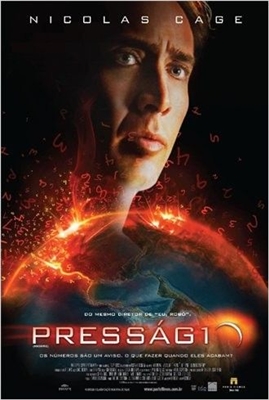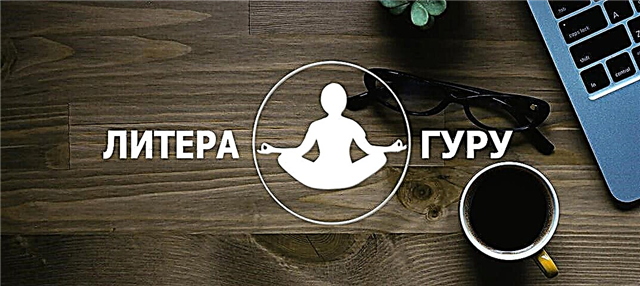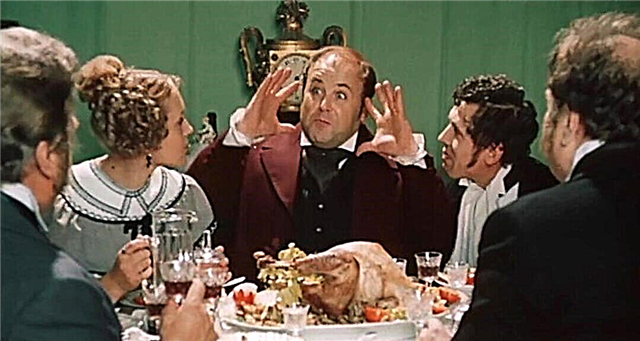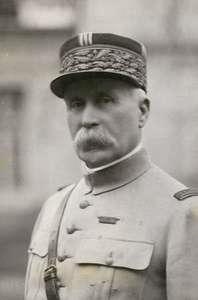Teamwork is the main competitive advantage
It is difficult to determine exactly what makes a team great, but one thing is clear: a great team is not just a combination of its components.
Example. In basketball, the coordinated work of mediocre players defeats the disjointed team of stars.
Why do even the most talented teams lose without coordinated work? They spend time and energy on the internal struggle. This leads to a decrease in morale, loss of concentration on the game and the departure of valuable players.
Example. DecisionTech was once a very promising startup, but its position was rapidly deteriorating. It was difficult for the company to seek customers, despite the presence of an experienced (and highly paid) team of managers, talented engineers, and high-class investors, which most startups could only dream of.
Why? There was simply a lack of coordinated work by the company's management. In a group of ambitious and successful people, their ego interferes with joint activities, as people compete with each other.
But it’s fixable: Catherine Peterson, the new CEO of DecisionTech, put well-coordinated teamwork above financial targets and saved the company.
Teamwork is built on trust - team members should not hide their weaknesses and mistakes
Trust and respect are the foundation of any relationship. Including teamwork. Why?
For the team to prove itself, the participants must trust each other. They should openly and calmly discuss the most complex or sensitive issues. So you can quickly find the best solution to the problem. Without trust, important issues can be ignored, leading to incorrect decisions.
Example. A replacement was needed during the departure of the DecisionTech sales manager, and Carlos Amador, the customer service manager, proposed. The rest of the team felt that its other members were better suited for such work. Thanks to their full confidence in the team, they immediately expressed their opinion. Carlos, in turn, was not offended and agreed that the production director was the best candidate.
Without a trusting relationship, such a situation could result in a conflict in which Carlos would not back down because of his ego.
How to build trust? Team members must voluntarily make themselves vulnerable to each other. This is not easy, because in a ruthless world, people learn to be competitive and actively defend their interests. Everyone should realize that they do not need to defend themselves against members of their own team. After making an effort, suppress caution and start openly discussing your weaknesses and mistakes. So everyone will see that the intentions of their colleagues towards them are exceptionally good, which will strengthen mutual trust.
Leader must take first step towards trust
The leader must motivate team members to trust each other.
Trusting relationships are possible when team members openly discuss their weaknesses, weaknesses, and mistakes without fear of judgment. Team members understand each other better when they know everything about their colleagues: knowing the weaknesses of another person, it is easier to reveal their own.
Example. To stimulate trust, Catherine organized a meeting at DecisionTech where team members shared their strengths and weaknesses. This simple exercise helped build confidence in each other.
The group leader should be the first to demonstrate his vulnerability. This will show the team members that they will never be punished for weaknesses in the company.
Example.To create an atmosphere of trust in DecisionTech, Catherine first shared her weakness. She talked about what managerial mistakes she made in the past, and admitted that she was even fired once.
If management is ready to show its vulnerability, subordinates will be able to do the same. Trust is a key ingredient that fuels constructive conflict.
If people trust each other, they enter into constructive conflicts and make informed decisions.
It is often believed that conflict, by definition, carries only negative. But a constructive conflict is important for any team - so it quickly makes optimal decisions.
By making decisions, you can benefit from different, often conflicting points of view. A free discussion of the merits and demerits of each idea leads to better results. Conflict is useful if it is constructive: everyone should focus on the subject of discussion, and not on personal interest or intrigue within the team.
With a lack of trust, the team avoids any conflict. Team members do not express their own opinions and concerns, preferring not to argue with each other. So they are trying to maintain some kind of pseudoharmony within the team.
Example. When Catherine first arrived at DecisionTech, she found that there was no discussion at the meetings. Leaders did not trust each other enough to discuss complex but vital issues.
Trust creates the conditions for conflict. Team members communicate freely even during an emotional discussion of a difficult issue, because they know that their opinions will not be perceived as destructive.
Example. To stimulate a healthy discussion at DecisionTech, Catherine built trust by building a team. Then the relations between the team members became so good that they entered into discussions even on previously controversial issues. Trust stimulated a constructive conflict that increased the team's effectiveness in finding the right solution.
But what if consensus is not reached?
Everyone must adhere to the decision, even if there is no agreement or confidence in its correctness.
Many had to sit at a meeting where decisions were not made, but only disputed.
One of the features of a great team is the ability to make decisions and stick to them. Team members know that any decision is better than its absence, especially when it comes to important issues.
It is necessary to follow the decisions made, otherwise uncertainty is born. In a management team, this leads to a split in goals and priorities, and inconsistency only worsens when it moves to the employee level.
In an excellent team, everyone can take part in decisions. It is always difficult to reach agreement, because there are different points of view and opinions. You can make a decision that will satisfy everyone, but usually it is ineffective. For great teams, consensus means that everyone is aware of the ultimate goal, even if they disagree with the decision.
Everyone should be able to express their opinion. Let the person feel that he has been heard, and this is already enough. Reasonable people often do not insist on their opinions, but they are happy when their point of view is taken into account. This unites the team even more. In great teams, people fully follow the decision made, even if at first they opposed it.
Great teams have a mutual responsibility of members
One of the most unpleasant moments in the life of the team is to tell a colleague that he is not working well or is behaving improperly. This is difficult, and most people feel like sticking their nose in other people's affairs or putting themselves above colleagues. But this is necessary, otherwise the team members will become less responsible, which will lead to a breakdown of deadlines and inefficient work.The team leader becomes the sole source of discipline if there is no individual responsibility.
Example. When one DecisionTech employee missed the deadline for submitting a competitor analysis report, Catherine reminded the rest of the team that they had to resolve the issue on time. It was obvious that the analysis would not be ready for the deadline, and the rest should have said this to the responsible officer in order to spur him on.
In some teams, people do not want to remind each other of responsibility, because they are afraid to spoil a good relationship. But in the end, employees begin to take offense at each other for unjustified expectations and a decrease in the performance of the entire team.
Members of a great team hold each other accountable and thereby strengthen their relationship. When there is trust, colleagues who are forced to work better do not take it personally, realizing that everything is done for the common good.
Peer pressure is the most effective way to maintain high quality standards. People who are afraid to part with teammates have an incentive to work and increase their productivity.
Mutual control is a key component in improving teamwork.
Effective teams aim for a collective result
Each team has goals that it wants to achieve - be it developing a new product or winning a basketball. And members of great teams understand that common goals are more important than personal ones.
Example. Her husband Katherine, the basketball coach, had to abandon one of his most talented players, because he did not care about the victory or loss of the team: he was only concerned about his points. That is, he set personal goals above command.
If such people remain, the team forgets about common goals and quickly loses competitive advantages. Its members begin to devote all their attention to a career. In the end, the best "players" go to more effective teams. This exacerbates the situation.
What goals support team commitment? Well defined and easily measurable. If the expected results are obvious and do not require decryption, a team member will not be able to abandon a common goal for personal reasons.
Example. DecisionTech brings together clear and measurable goals, such as “bring 18 new customers by the end of the year.”
Clear goals allow team members to help each other.
Example. DecisionTech's project department mobilized its resources to help the sales team with product demonstrations. So they managed to attract more customers and achieve a common goal.
Great teams spend a lot of time together
Just as a boat cannot sail anywhere without the efforts of every rower, so the team will not be able to work if its members do not agree among themselves. How to get rid of uncertainty or indecision within a team?
Meetings should be held regularly. There are 3 reasons for this:
- This allows you to build good relationships and trust, which helps to resolve issues quickly and efficiently.
- Conflicts are best resolved face to face. It is much easier to listen to arguments from team members in real time when everyone is in one place.
- At personal meetings, team members get a better idea of what each of them does and how to use their skills in other areas.
Example: To reduce the performance loss at DecisionTech, Catherine decided to “force” team members to spend a lot of time together. About eight days in the financial quarter are spent on meetings: annual meetings, quarterly on-site meetings, weekly staff meetings, and emergency meetings.
If the team reaches mutual understanding, it will be able to work more harmoniously. The amount of duplicate work is reduced if each team member sees what others are doing, and resources are allocated wisely, because team members immediately see where their knowledge will be useful.
Regular meetings help teams work smoothly and efficiently, this saves a lot of time.
The most important thing
Great teamwork is a powerful competitive advantage, but very rare, because it is incredibly difficult to achieve.The foundation for effective teamwork consists of trust, participation in a constructive conflict, following the decisions made, mutual control and commitment to common goals.
Set a personal example. Before starting a business, ask yourself: "What kind of life do I dream about?" Decide how much money you need and how much you want to work. These key points must be identified at the very beginning, because you are creating a business to achieve your goals.
Set clear goals and follow them. Once in the team as a leader or participant, insist on defining open goals and quality standards. Require them to be followed with regular progress reports. This will orient each team member towards common goals and will stimulate individual responsibility. And do not forget: common goals require common rewards, as in team competitions.




 Family antiquary
Family antiquary






